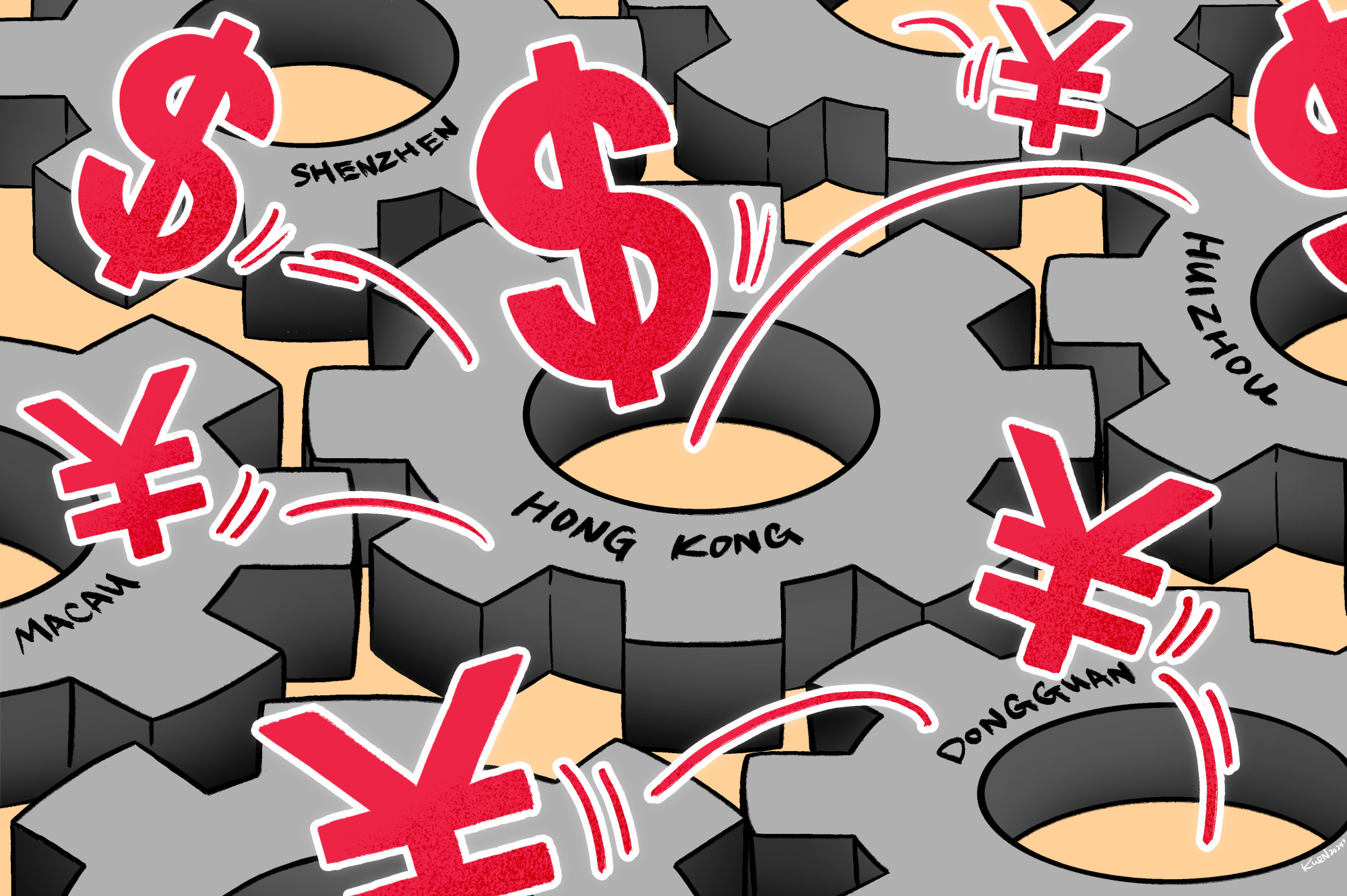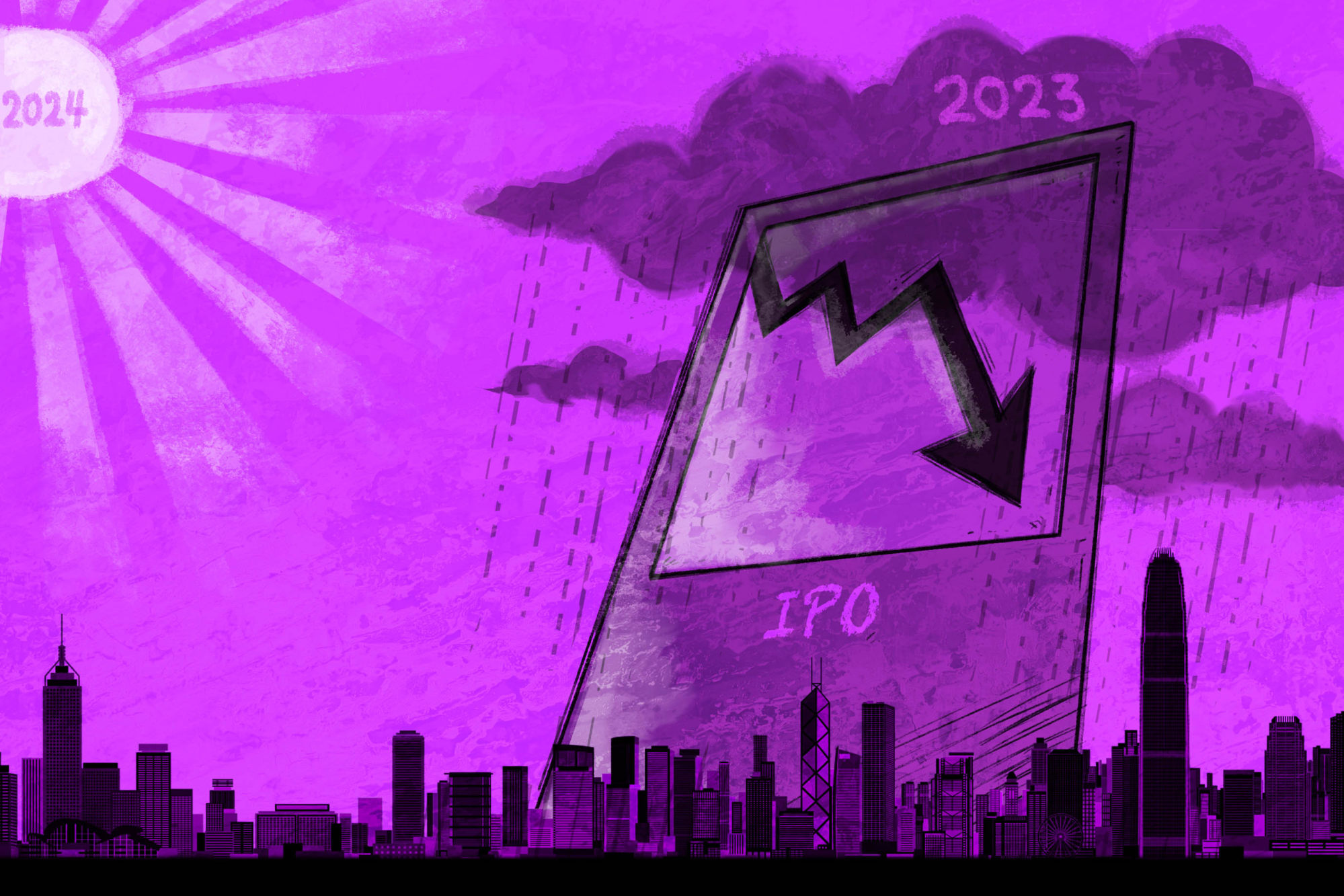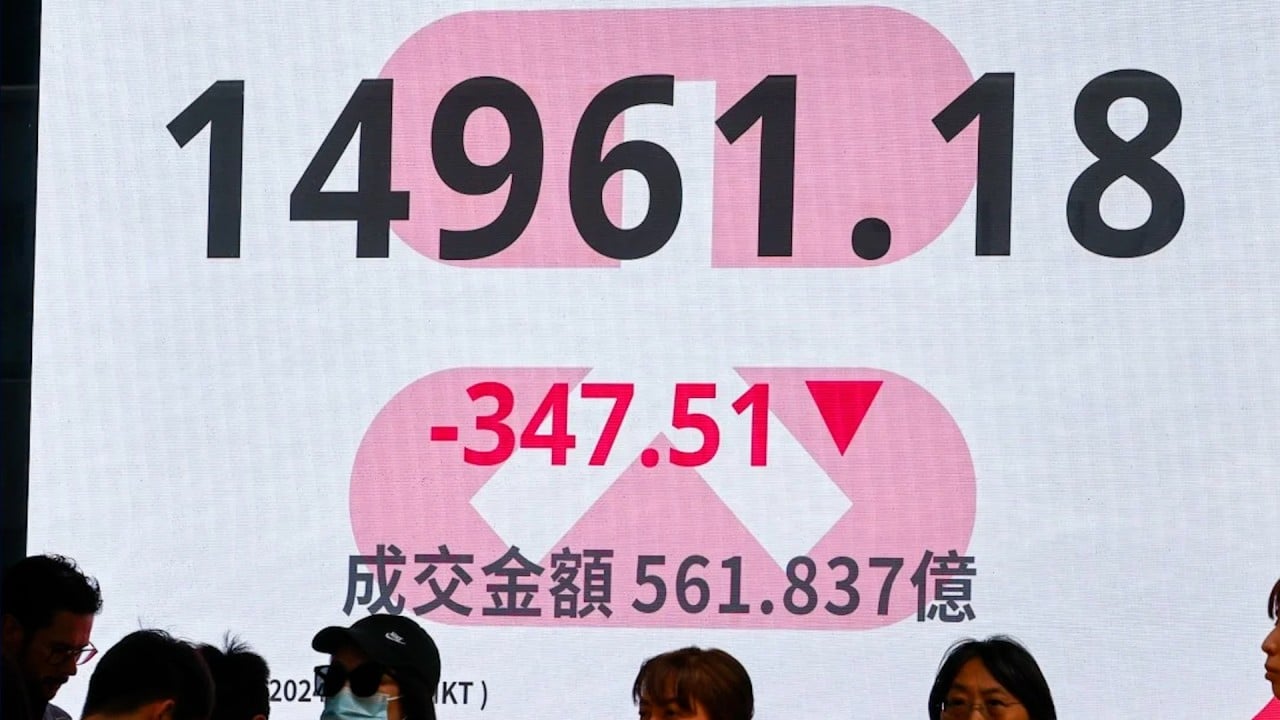Global Impact: Hong Kong’s stock market eyes light at the end of the tunnel after 3 years in the doldrums

Global capital rushed to Wall Street after the US Federal Reserve raised its key interest rate by five percentage points from 2022, and initial public offerings (IPOs) slowed to a trickle in Hong Kong.
Chan, who wrote the paper that formed the legal basis for the HKEX’s listing reforms to allow dual-class stocks, may draw some confidence from history.
The Hang Seng Index rose in each of the four dragon years in the lunar calendar going back to 1976, according to a study by the Post. Even in 2000, the lunar cycle managed to eke out a gain of 0.5 per cent in a market that slumped 11 per cent over the calendar year after the dotcom bubble burst.
60-Second Catch-up
Deep dives

Hong Kong bankers on ‘survival mode’ as IPO drought ends windfalls
-
‘The environment is very stressful right now, particularly for young investment bankers, says Jerry Chang, a consultant at Barons & Co
-
The landscape has shifted considerably since the last quarter, with an overall decrease in hiring across the investment banking sector: Robert Walters
This year, five companies have raised HK$2.18 billion (US$279 million) from their stock offerings in the first two months, according to data compiled by London Stock Exchange Group, the slowest momentum since 2011. In mainland China, 18 IPOs generated 15.2 billion yuan (US$2.1 billion), the least since 2016 at this stage. In contrast, the US market is enjoying its best run in three years, with 26 IPOs and US$6.3 billion in proceeds.

China’s fillip to bonds, wealth products is a leg up for Hong Kong
-
The policies will be a boon for central bank digital currencies such as Hong Kong’s e-HKD and the mainland’s e-CNY, as they get the go-ahead for simultaneous trials
-
Another new policy known as cross-boundary credit referencing will allow banks in Hong Kong and the mainland to share credit information of the companies
Hong Kong’s role as the trading hub for offshore yuan will get a leg up from the policies unveiled by the People’s Bank of China to enhance wealth management and the Bond Connect transborder investment channel, according to speakers at the Asian Financial Forum (AFF).
The new policies will also benefit Hong Kong’s developers as they relaxed cross-border payment rules between the 11 cities of the Greater Bay Area to make it easier for the residents of Hong Kong and Macau to buy homes in southern China, said New World Development’s Chief Financial Officer Edward Lau Fu-keung.

Hong Kong’s star shines as Greater Bay Area’s rich tap tax breaks, incentives
-
Greater Bay Area money flows have boosted Hong Kong’s wealth management assets nearly 30 per cent to US$3.9 trillion in the five years to the end of 2022
-
From February 26, the Wealth Management Connect scheme will be expanded for bay area residents with higher investment quotas and fund choices
February 18 marks five years since Beijing unveiled its blueprint to turn the Greater Bay Area into a hi-tech powerhouse by 2035. The region of more than 86 million people covers Hong Kong, Macau and nine Guangdong cities.
In the third of a four-part series, Enoch Yiu looks at Hong Kong’s progress in becoming the de facto wealth management hub for the wealthy, and what needs to done to stay on top.

Hong Kong IPOs: here’s what’s in store in 2024 after a miserable 2023
-
Hong Kong stock exchange’s IPO ranking sank to 8th this year, with fundraising slumping to US$5.9 billion from 68 listings
-
Analysts are confident Hong Kong can shrug off a dismal year, pointing to a slew of positive signs including potentially lower interest rates and China’s policy boost

Dual counter to lift Hong Kong’s yuan hub status, improve liquidity
-
The dual-currency counters will offer investors a choice of trading in Hong Kong dollars or in yuan and the two categories of shares will be fungible
-
The number of yuan-share class funds have near doubled to 377 at the end of 2022 from 191 in 2018
“Thirty years ago, international investors did not care about the yuan shares listed in Shanghai and Shenzhen,” said Chan, permanent honourable president of industry body Institute of Securities Dealers, while referring to the indifference towards the undervalued currency which was hard-pegged to the dollar.

Does Trump want to fence off Wall Street from Chinese firms?
-
Chinese companies are asking the ‘hard question’ of whether they should list in the US or Hong Kong
-
If the US cannot be viewed as a viable, stable counter party, ‘you’re going to get a competitor somewhere in the world’, says NYU finance professor
As the White House continues to put pressure on Beijing to reach a deal on trade, concerns are growing the Trump administration may try to shut Chinese companies out of capital markets in the United States.
It would mark a stark shift in policy and politicise what has been one of the key tenets that has fuelled massive gains in the US financial markets for decades – the free flow of capital.
Global Impact is a weekly curated newsletter featuring a news topic originating in China with a significant macro impact for our newsreaders around the world.




